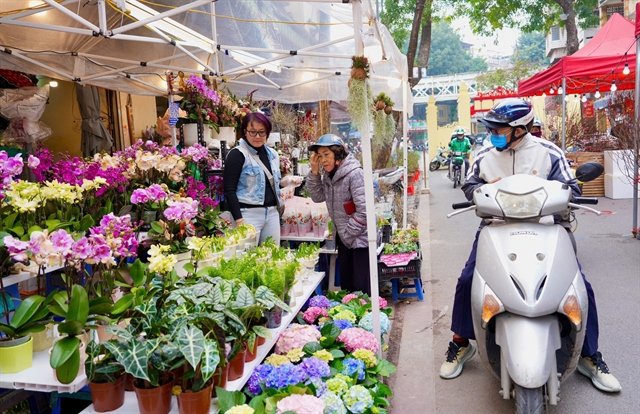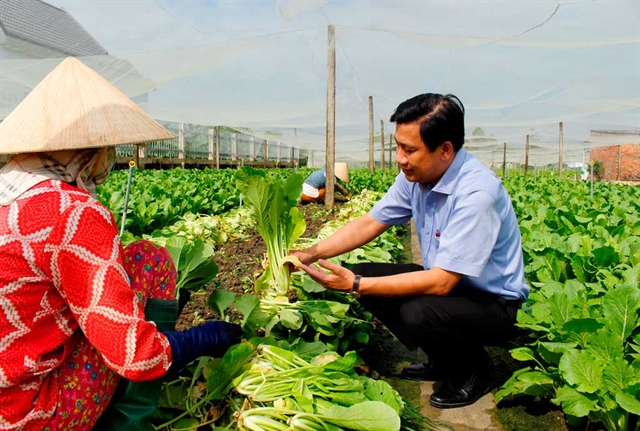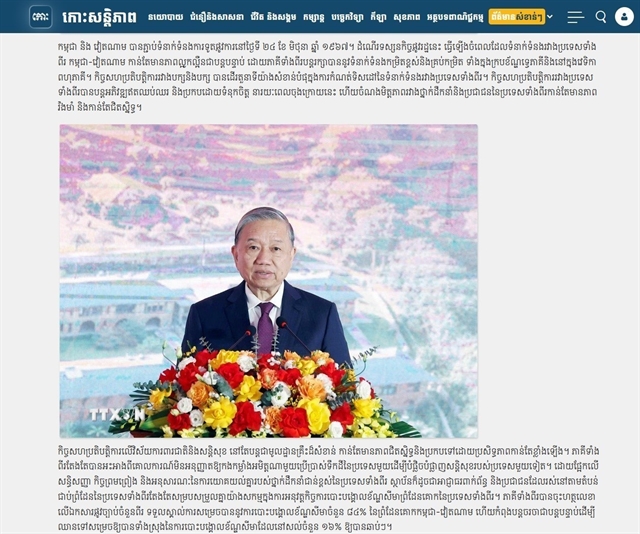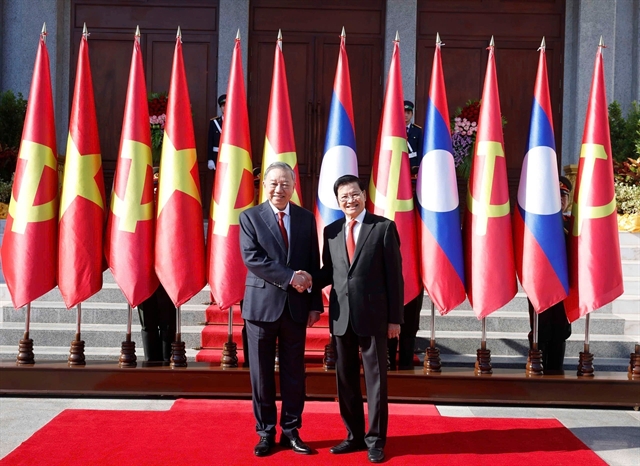.jpg) Sports
Sports


|
| Long An Province is implementing many farming models that use advanced farming techniques and provide higher incomes to farmers. – Photo baolongan.vn |
LONG AN — Many farming models using advanced techniques and offering farmers higher incomes have been adopted in the Cửu Long (Mekong) Delta province of Long An.
After three years of implementation, a trial project to grow vegetables on 2,000ha in Cần Đước, Cần Giuộc and Đức Hòa districts and Tân An City until 2020 has been hailed by local farmers for its efficiency.
Đoàn Phương Nga, deputy head of the province's Sub-department of Plant Cultivation, Protection and Agricultural Product Quality Management’s plant cultivation and protection division, said farmers participating in the project have achieved high incomes.
They have built net houses, installed efficient irrigation equipment and use machinery for cultivation and harvest.
The use of organic fertilisers and net houses causes the vegetables to grow well and get few diseases.
The farmers also buy disease-free seedlings from selected nurseries that grow well.
They have reduced the use of pesticides and get yields that are 5-20 per cent higher than from traditional farming method and profits that are VNĐ2-5 million (US$86-215) per 1,000sq.m higher.
Đoàn Văn Út, a member of the Phước Thịnh Co-operative in Cần Giuộc District and a participating farmer, said he grows water melon on an area of 5,000sq.m and receives a 50 per cent subsidy on seedling and other input costs.
He harvests 3,000-3,050kg per 1,000sq.m, 200-250kg higher than normal, he said.
He earns VNĐ33-33.5 million ($1,420-1,440) per crop, VNĐ2.2-2.25 million ($94-97) higher than from normal melon.
Đặng Duy Dũng, director of Phước Thịnh, said: “Participating in the farming models, the co-operative’s members both apply advanced farming techniques and get higher incomes.”
There are 10 agricultural co-operatives and 30 co-operative groups participating in the project, according to the province's Department of Agriculture and Rural Development.
Nguyễn Chí Thiện, deputy director of the department, said the models have received positive responses from farmers.
To meet the project’s targets, the department and localities would continue to teach farmers advanced farming techniques and establish model farms for them to visit and learn, he said.
The province has 13,500ha growing vegetables, yielding annual production of 221,000 tonnes.
Expansion
The province's Farmers Association has urged farmers, co-operatives and agricultural companies to expand the use of advanced farming techniques.
It has organised training courses for farmers and encouraged them to grow crops to Vietnamese and global good agricultural practices standards.
It has encouraged farmers to install drip irrigation and spray irrigation equipment.
Phạm Chí Tâm, its chairman, said the association plans to establish 13 model farms that use advanced farming techniques at a cost of VNĐ3 billion (over $129,000) this year.
They include two models for growing dragon fruit in Châu Thành District, seven others for growing vegetables in Cần Đước and Cần Giuộc districts and two each for breeding oxen and cows in Đức Hòa District and planting rice in Thạnh Hóa and Vĩnh Hưng districts.
Nearly 13,400ha of rice are farmed using advanced techniques, according to the department.
They use certified seeds, laser-operated land levellers, ploughing machines, and combined harvesters.
Farmers use organic fertilisers and bio-cides and grow flowers around the fields to attract insects that are natural enemies of brown plant hoppers, the main rice pest.
Rice grown this way fetches VNĐ4-6 million ($172-258) per hectare higher than from normal fields.
The province has encouraged the creation of large-scale rice fields to reduce costs, increase productivity and guarantee outlets.
For the current summer-autumn rice crop, 2,677 farmers have pooled their lands to create 94 large-scale rice fields.
They have signed contracts for guaranteed purchases with 25 rice companies.
The province plans to have 20,000ha of rice grown using advanced techniques by the end of this year. — VNS




